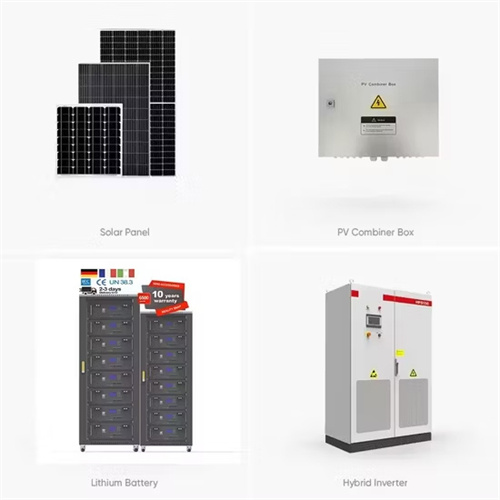Photovoltaic water cooling panel wholesaler

Photovoltaic passive cooling via water vapor sorption
Consequently, Equation (1) is employed to calculate the average cooling power P cooling under various conditions: (1) P cooling = Δ H vap × Δ m t × A, where ΔH vap denotes

Performance Enhancement of PV Panel by Cooling Front Surface of PV
Front cooling provides a 9.64% enhancement inefficiency on average. The average temperature fall of the front and back surfaces is 3.54 °C and 2.79 °C, respectively,

Photovoltaic panels: A review of the cooling
In addition, it aims to study the assessment of water quality, in particular groundwater used for cooling and cleaning photovoltaic panels (quality analysis). it''s an important source, stable and

Dualsun SPRING: the leading hybrid solar (PVT) panel
A 2-in-1 innovation A combination of photovoltaic and thermal solar energy that produces at least 2 times more energy than a conventional photovoltaic panel.; Made in France label SPRING technology is designed by Dualsun''s

(PDF) Effect of water cooling temperature on photovoltaic panel
For the water cooling system, the PV panel with the inlet water temperature of 20 °C can be reduced the temperature of PV panel by 15.63 °C as compared to the PV panel with

Cooling down PV panels with water – pv magazine
France''s Sunbooster has developed a technology to cool down solar modules when the ambient temperature exceeds 25 C. The solution features a set of pipes that spread a thin film of water onto the glass surface of

Increasing photovoltaic panel power through water cooling technique
The average temperature fall of the front and back surfaces is 3.54 °C and 2.79 °C, respectively, mainly the front water flow over the solar panel. Front cooling provides a

Enhancing the performance of photovoltaic panels by water cooling
If the pump is operated such that it sprays water over the PV panels at a flow rate of 29 l/min, this will result in cooling of the PV panels from the MAT of 45 °C to 35 °C in

Power Generation Improvement using Active Water Cooling for
This research aims to study the power improvement of active water-cooling on photovoltaic (PV) panels. A fixed minimum water flow of 5.80 l/min is sprayed onto the panel''s front surface to

Enhancing Photoelectric Conversion Efficiency of Solar Panel by Water
In this study the cell surface temperature was reduced to low rates to improve efficiency and increase power by cooling the surface of the solar panel with water through

Cooling Solar Panels With Water: Is It Really Worth It?
The Experiment: Cooling a Solar Panel. With the baseline and temperature coefficient in mind, it''s time to put together a rig for our cooling experiment. I''m using a simple setup with schedule 40 PVC pipes to create a

Increasing the efficiency of photovoltaic panels through cooling water
For floating photovoltaic (FPV), water cooling is mainly responsible for reducing the panel temperature to enhance the production capacity of the PV panels, while the system

Advantages and Disadvantages of active water-cooling techniques
For floating photovoltaic (FPV), water cooling is mainly responsible for reducing the panel temperature to enhance the production capacity of the PV panels, while the system efficiency

Related Contents
- Solar photovoltaic panel spray cooling
- Photovoltaic panel terminal water tank installation
- Photovoltaic panel N type wholesaler
- Water X Photovoltaic Panel
- Photovoltaic panel water tank installation process
- Solar photovoltaic panel water mist
- Photovoltaic horizontal panel small water tank installation
- Installation of water channel for Skyworth photovoltaic horizontal panel
- Is there a water leak under the photovoltaic panel How to fix it
- Water cooling plate for photovoltaic panels
- How to install the photovoltaic panel water tank button
- How much does it cost to add a water tank to a photovoltaic panel